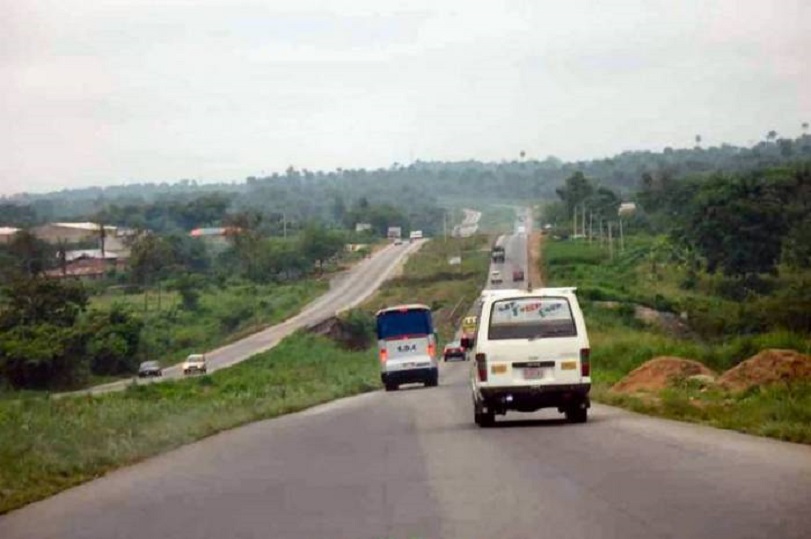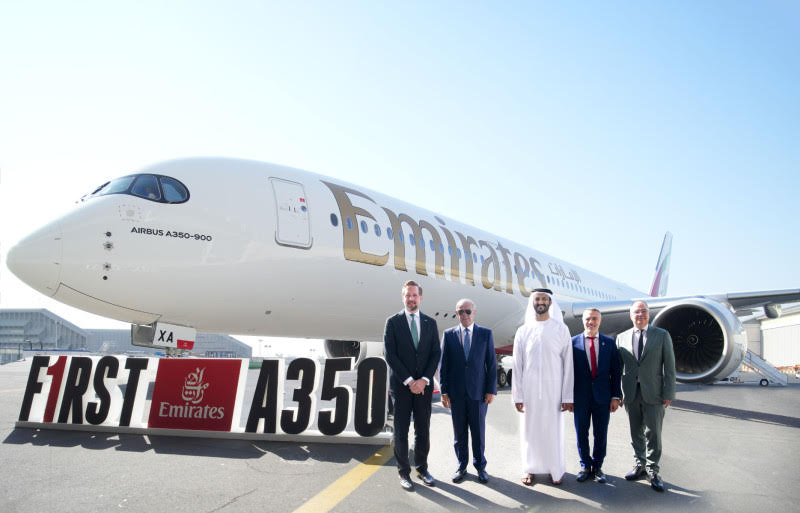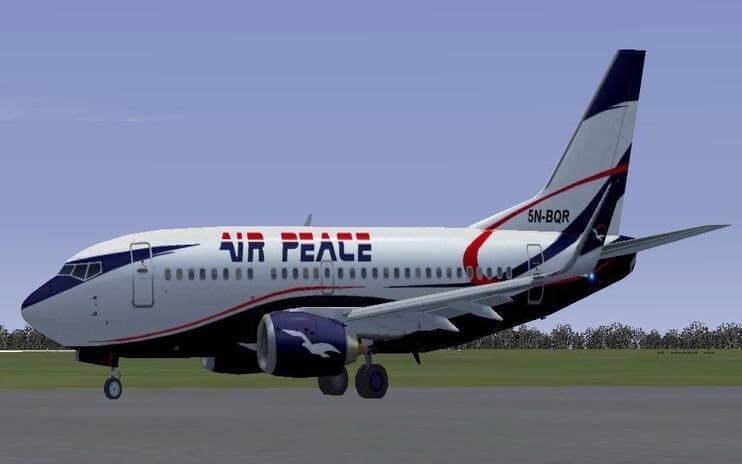Travel/Tourism
The Dangers of Long-distance Travel

Travelling far distances by car, bus, plane, or train is not always fun. Did you know it can even have a harmful impact on your health, too? Long-distance travel, especially by car, taxi, or bus, can increase the risk of blood clot formation, a condition known as deep vein thrombosis (DVT).
In many instances, people sit still in cramped and confined conditions for hours when they’re travelling a far way. But warns Dr Helen Okoye, a medical expert and spokesperson for the World Thrombosis Day (WTD) campaign, prolonged periods of inactivity can be dangerous.
“When our bodies are in a static position for a lengthy period, our blood circulation slows down, leading to poor circulation and blood pooling in the lower extremities of your body. This can lead to a DVT, where a blood clot forms in your calves,” says Dr Okoye. If this clot breaks loose, it can travel to the lungs, causing a potentially life-threatening condition called a pulmonary embolism (PE).
If the vehicle you’re travelling in is packed with passengers, there may be no room to stretch your legs out. The driver may also be on a tight schedule, meaning limited bathroom stops and opportunities to stretch your legs during the trip.
Dr Okoye cautions that constricted seating that leads to passengers sitting in one position for a long time reduces blood flow and increases the risk of clot formation. “When your legs remain still for hours, your calf muscles don’t contract, which normally helps the blood circulate,” she says.
Who is at risk?
Although prolonged immobility is bad for everyone, specific factors could raise the risk even more. Individuals with a history of blood clotting disorders, who are elderly or obese, who have recently had surgery, or who have a leg cast with limited mobility are at a higher risk. Pregnancy, or three months after giving birth, places women at a higher chance of getting a thrombosis, too.
“Going back home after giving birth or having had surgery so that loved ones can take care of you is understandable, but be aware of the thrombosis risk that comes with long-distance travelling,” says Dr Okoye.
If you have a history of blood clotting disorders, she advises that you consult with your healthcare provider before travelling. In some cases, you might be prescribed blood-thinning medication to reduce the risk. You could also consider wearing graduated compression stockings to help improve blood circulation.
Before your trip
Prior to your trip, engage in regular physical activity to improve overall circulation and strengthen your muscles. Maintain a diet rich in fruits, vegetables, and whole grains and avoid excessive salt intake, as it can contribute to fluid retention. Smoking can also increase the risk of blood clot formation, so it’s best to avoid it before and during your travel.
During the trip
Having to cope with tight legroom and restricted movement is tricky, but there are preventive measures to take.
“Hot, dry weather and inadequate fluid intake during travel can lead to dehydration, which can thicken the blood and contribute to clot formation. Drink plenty of water during your trip to avoid dehydration and maintain proper blood viscosity. Limit alcohol and caffeine intake, as they can contribute to dehydration,” says Dr Okoye.
“Wear loose-fitting clothing and stay as active as possible. Move your legs frequently, flex your ankles and knees, and take short walks whenever possible. In a bus, consider standing up and stretching in the aisle. Adjust your seating position regularly to improve circulation, and use pillows or cushions to provide support and comfort,” she advises.
Remove your shoes and, if possible, elevate your legs periodically to reduce swelling and improve blood flow. Avoid crossing your legs – this can impede blood flow, so keep your legs uncrossed while seated. When you do stop for a break, stretch your body, and walk around for a bit before you sit down again.
Warning signs
According to the WTD campaign, one in four people in the world is dying from conditions caused by thrombosis, but knowing blood clot signs and symptoms can help you spot or prevent blood clots. The most common symptoms of DVT in long-distance travel are usually swelling or pain in the leg or arm, skin that is warm and tender to touch, or redness of the skin.
Remember that these preventive measures are general recommendations and may not be suitable for everyone, says Dr Okoye. ”If you have specific health concerns or conditions, consult with a healthcare professional before embarking on a trip to find out if you are at risk of getting blood clots and if it is safe for you to travel a long distance.”
Leave a Reply
Travel/Tourism
Musawa, Governor Mba Commission Enugu Christmas Village

By Dipo Olowookere
The Enugu Christmas Village has been commissioned by the Minister of Arts, Tourism, Culture, and the Creative Economy, Ms Hanatu Musawa; and the Governor of Enugu State, Mr Peter Mba.
This development officially kicked off the holiday season in the state, giving residents and others from across Nigeria and outside the opportunity to relax in an atmosphere of love, positioning Enugu as a key destination for cultural and holiday tourism.
Facilitated by Omu Resort, a leading tourism promoter in Africa, the Enugu Christmas Village is set to become the heartbeat of holiday celebrations in the state.
The company has already organised a 25-day festival at the village designed to attract residents, visitors, and dignitaries from across the region.
With its vibrant atmosphere and festive attractions, the Enugu Christmas Village boasts an array of attractions such as a waterpark, roller skating, archery, amusement rides, and much more.
At its centre is a breathtaking display of 500,000 Christmas lights, illuminating the village in a magical glow that promises to captivate visitors of all ages.
The festival goes beyond the lights and rides, offering a rich tapestry of events that celebrate the state’s cultural heritage.
Highlights include Afrobeat Concert, Praise Night, Highlife Concert Street Carnival, Cultural Parade and a Grand Fireworks Show.
One of the most anticipated moments is the Santa Street Storm, where over 100 Santa Claus figures riding tricycles will parade through the streets, distributing gifts to orphanages and the less privileged, spreading joy and goodwill.
Running from December 7 to December 31, 2024, the Enugu Christmas Festival is more than just a celebration of the holiday season. It underscores the state’s cultural vibrancy and its potential as a leading tourist destination.
The festival offers a unique opportunity for families and friends to come together, celebrate, and unwind in a festive atmosphere. It is also expected to fosters unity and showcases the rich cultural heritage of Enugu State, while promoting arts, tourism, and community well-being.
Travel/Tourism
Emirates Unveils Airbus A350-900 in Dubai

By Aduragbemi Omiyale
One of the leading airline operators, Emirates Airline, has officially unveiled its first Airbus A350-900 at an exclusive event showcase in Dubai attended by aerospace partners, government officials and dignitaries, members of the media, as well as aviation enthusiasts.
The Emirates A350 features three spacious cabin classes, accommodating 312 passengers in 32 next-generation Business Class lie-flat seats, 21 Premium Economy seats and 259 generously pitched Economy Class seats.
The latest onboard products reflect the airline’s commitment to delivering a premium passenger experience while optimising operational efficiency. The Emirates A350 is the first new aircraft type to join Emirates’ fleet since 2008.
Apart from its newly delivered A350, Emirates operates two other aircraft types around the world to 140 destinations – the widebody Boeing 777 aircraft and the iconic ‘double decker’ Airbus A380 aircraft.
The A350’s introduction will enable Emirates to expand into new destinations globally, including mid-sized airports unsuited for larger aircraft. The Emirates A350 will be delivered in two versions – one for regional routes and one for ultra long-haul routes.
The Emirates A350 takes technology to another level. Customers can now adjust their electric window blinds at the touch of a button.
The aerBlade dual blind system will feature in Business and Premium Economy Class offering two shaded options, and the aerBlade single blind systems will make a debut in Economy Class, with all blinds showing the Emirates Ghaf tree motif when closed.
Business Class on the Emirates A350 will feature 32 luxurious leather ‘S Lounge seats’, inspired by the Mercedes S Class for an exceptional travel experience. The A350 aircraft will feature brand new additions of wireless charging on the side cocktail table in Business Class, and in-seat lighting controls with 5 streams of light. The 1-2-1 seat configuration in the A350 Business Class ensures a very private, exclusive experience.
Speaking at the event, the chairman of Emirates Airline, Mr Ahmed bin Saeed Al Maktoum, said, “Today is an exciting milestone for Emirates as we showcase our first A350 and usher in a new era for our fleet and network growth.
“This aircraft sets the stage for Emirates to spread its wings farther by offering added range, efficiency and flexibility to our network, enabling us to meet customer demand in new markets and unlock new opportunities in the cities that we serve.
“Onboard, our updated interiors and seating configurations will help us deliver a more elevated and comfortable experience to travellers across every cabin class.
“The 65 Emirates A350s joining our fleet in the coming years fit into the airline’s broader plans to support our visionary leadership’s Dubai’s D33 Strategy, which will transform the city into a pivotal hub in the global economy by expanding its connectivity and reach.”
Travel/Tourism
Air Peace Employees Undergo Training at Boeing Global Learning Institute

By Aduragbemi Omiyale
Some employees of Air Peace have upgraded their aviation safety skills at a training course organised by Boeing through the Boeing Global Learning Institute (BGLI) in collaboration with Cranfield University, United Kingdom as part of a shared commitment to shaping the future of aviation leadership.
Over the years, Air Peace has recognized that a deep, unwavering commitment to safety is key to its continued success.
The programme is aimed at building upon that vision, enabling executives to lead with confidence, manage risks effectively, and create high-performing teams that prioritize safety at every level.
In the five-day in-person training, all the executives and others in the various departments of Air Peace were taught advanced safety leadership skills and gained practical tools to implement the new knowledge.
The Head of Aerospace at Cranfield University, Prof Graham Braithwaite, said, “This collaboration ensured that the training directly addresses the challenges Air Peace faces, culminating in real-world capstone projects that would have a lasting impact.”
Reinforcing this position, the Lecturer for Organisational Resilience and Change at Cranfield School of Management, Fabian Steinmann, who was excited at the great progress Air Peace made over the years, said that they are happy to learn and share knowledge and find ways to strengthen the system, making it robust and flexible to adapt to the ever-changing environment.
“Safety is at the heart of everything we do at Cranfield so the privilege we have is that we travelled around the world, picked up the good practices, learned more about the culture and the operation in various countries so we’re here to facilitate that exchange with Nigeria and Air Peace to see how we share some of the good practices and lessons learned from all around the world and translate them into their operation.”
Also, the Senior Organisational Consultant and Programme Manager at Boeing Global Learning Institute, Harry Magui, said, “The Boeing company has long recognised the importance of supporting continuous learning of our aviation partners.
“To that end, the Boeing Global Learning Institute designs and delivers numerous learning programmes to both emerging and established leaders of our partners.
“These efforts aim to develop leadership, business, and technical skills so that our partners can improve their business processes, increase operational efficiency and enable leaders to strengthen their teams to ultimately grow their business.’
Alluding to the great work Air Peace has done in making safety a pre-condition rather than just a priority, Magui said, “We’re here to partner with our great partner, Air Peace who have been phenomenal in advancing the Aviation Industry in Nigeria, so we are here to support them to harness more opportunities in the future with the Advanced Leadership in Safety Excellence Training for all its top leadership within the organization.”
The Safety Manager at Air Peace, Captain Godfrey Ogbogu, said, “This class is quite essential and we’re lucky to have our resource persons impact knowledge on us. It is a well-structured training, especially for Air Peace because of where we are now and where we hope to go in the future.
“The whole essence of this class is to reinforce what we know before and be exposed to other avenues of learning. The aviation industry is ever-changing and dynamic, and Air Peace has to be abreast of such developments.”
-

 Feature/OPED5 years ago
Feature/OPED5 years agoDavos was Different this year
-
Travel/Tourism8 years ago
Lagos Seals Western Lodge Hotel In Ikorodu
-

 Showbiz2 years ago
Showbiz2 years agoEstranged Lover Releases Videos of Empress Njamah Bathing
-

 Banking6 years ago
Banking6 years agoSort Codes of GTBank Branches in Nigeria
-

 Economy2 years ago
Economy2 years agoSubsidy Removal: CNG at N130 Per Litre Cheaper Than Petrol—IPMAN
-

 Banking2 years ago
Banking2 years agoFirst Bank Announces Planned Downtime
-

 Sports2 years ago
Sports2 years agoHighest Paid Nigerian Footballer – How Much Do Nigerian Footballers Earn
-

 Technology4 years ago
Technology4 years agoHow To Link Your MTN, Airtel, Glo, 9mobile Lines to NIN
















Pingback: The Dangers of Long-distance Travel – African Budget Bureau